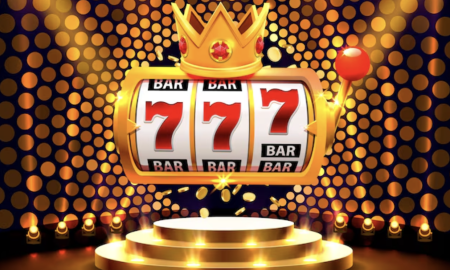
Gambling has long been a divisive topic, with opinions ranging from staunch opposition to enthusiastic support. While many see it as a source of entertainment or a way to test one’s luck, few consider the possibility that gambling could potentially sharpen cognitive abilities. We are going to talk about how gambling can affect cognitive processes in this blog post. Specifically, the pros and cons of this controversial activity.
The Possibilities
Say, you came across this Captain Cooks Casino Review and it piqued your interest. You signed up and tried a few games. It was fun, but you also noticed that in certain games you had to put your thinking hat on. Why is that?
Probability and Mathematics
One of the most obvious ways in which gambling can sharpen cognitive abilities is through the understanding of probability and mathematics. Games like poker, blackjack, or roulette require players to calculate odds, make quick decisions, and strategize. Over time, players develop an intuitive sense of probability and enhance their mathematical skills.
For example, poker players need to assess their chances of drawing a specific card or predict their opponents’ possible hands. This requires a deep understanding of statistics, which can translate into improved mathematical abilities in other aspects of life.
These enhanced mathematical skills can be applied to various scenarios, such as managing personal finances, making investment decisions, or even excelling in academic pursuits. The ability to analyze complex data and make informed choices is a valuable cognitive asset.
Decision-Making and Risk Assessment
Gambling involves making high-stakes decisions under pressure, which can train individuals to become better decision-makers and risk assessors. Successful gamblers must weigh the potential rewards against the risks involved, learning to manage their emotions and stay focused.
These skills can have positive spillover effects in real-life situations, such as making career decisions, managing personal finances, or evaluating investments. In this sense, gambling can serve as a real-world simulator for decision-making in high-pressure scenarios.
Furthermore, the ability to evaluate risks and rewards logically is invaluable in everyday life. It allows individuals to navigate complex situations with confidence, making choices that maximize benefits while minimizing potential drawbacks.
Emotional Control and Resilience
Gambling can be an emotionally charged activity, with the potential for both wins and losses. Those who engage in it may develop emotional control and resilience as they experience the ups and downs of the game. Learning to manage emotions, whether it’s the euphoria of winning or the disappointment of losing, can lead to better emotional intelligence.
This emotional resilience can be applied to various life situations, helping individuals handle stress, setbacks, and challenges with grace and composure. Effective emotional control allows for more rational decision-making and a greater ability to adapt to adverse circumstances.
In the professional realm, individuals with strong emotional control often excel in leadership positions, as they can remain calm under pressure and make well-considered decisions that benefit their organizations.
Memory Enhancement
Many gambling games require players to remember past actions, cards played, or betting patterns. For instance, in games like blackjack, players must keep track of the cards that have been dealt. This constant exercise of memory can help improve one’s ability to retain and recall information.
Strengthened memory can have practical applications in daily life, such as enhanced learning, better academic performance, and improved recall of important details in various situations. Whether it’s remembering important dates, people’s names, or work-related information, an improved memory can significantly enhance one’s cognitive abilities.
The Dangers
The cognitive benefits of gambling are real and can extend beyond the casino floor. The development of skills like probability analysis, decision-making, emotional control, and memory can have positive effects on various aspects of life. But do the pros outweigh the cons?
Addiction and Impulse Control
While gambling can potentially sharpen cognitive abilities, it comes with a significant downside: the risk of addiction. Gambling addiction, also known as gambling disorder, is a recognized mental health issue that can have devastating consequences.
Individuals struggling with gambling addiction often have difficulty controlling their impulses, which can have a detrimental impact on their lives. The cognitive abilities that may be enhanced through gambling can become overshadowed by the overwhelming urge to gamble at any cost.
Financial Ruin
The prospect of financial gain in gambling can be alluring, but the flip side is the potential for financial ruin. Many gamblers experience significant losses, which can lead to financial instability and debt. This financial stress can negatively impact cognitive functions, causing anxiety, depression, and impaired decision-making.
It’s important to remember that the vast majority of gamblers lose more money than they win, and the financial consequences can be severe. Instead of enhancing cognitive abilities, financial distress can have the opposite effect, leading to poor mental health and impaired cognitive functions.
In some cases, individuals may chase their losses, believing that they can recover their money through further gambling. This behavior can lead to a downward spiral of financial devastation.
Social Isolation
Gambling can become a solitary pursuit, isolating individuals from their friends and family. As gambling takes up more time and resources, relationships can deteriorate, leading to social isolation. This isolation can have a negative impact on cognitive functions, as social interaction is crucial for mental well-being.
Loneliness and social withdrawal can lead to cognitive decline, as the brain thrives on social engagement and stimulation. Isolation can also exacerbate feelings of depression and anxiety, further impairing cognitive abilities.
Cognitive Distortions
In the pursuit of winning, some gamblers may develop cognitive distortions, such as overconfidence or the illusion of control. These distortions can lead to poor decision-making and impede the development of healthy cognitive abilities.
The belief that one can predict or control random outcomes can be detrimental not only in gambling but also in various aspects of life, hindering sound judgment and rational thinking. Overconfidence can lead individuals to make risky decisions and underestimate the role of chance in their outcomes.
Conclusions
Gambling is a complex activity with the potential to both sharpen cognitive abilities and pose significant dangers. While it can enhance skills, it can also lead to addiction, financial ruin, social isolation, and cognitive distortions.
For those who choose to engage in gambling, it is essential to do so responsibly and with awareness of the potential risks involved. Seeking help and support when facing gambling-related problems is crucial. Ultimately, the decision to gamble should be made with careful consideration of the potential consequences, both positive and negative, on one’s cognitive abilities and overall well-being.


















Follow Us